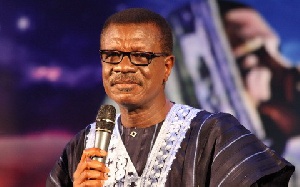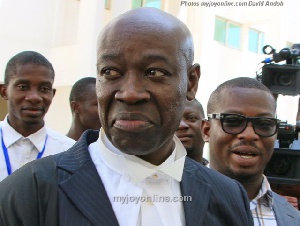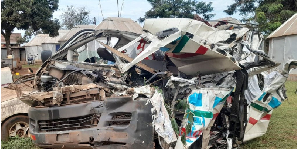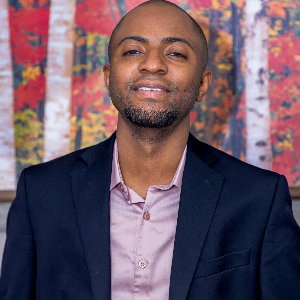Yesterday I watched a video in which Prophet Kumchacha was calling for the BNI to arrest Pastor Mensa Otabil for fraud. According to him, Pastor Mensa Otabil has been chastising other pastors for charging their members GH¢100 for consultations, and therefore did not see why the same pastor Otabil should charge others $5,000 for miracles.
I am not a member of ICGC. But in the last one year I have devoted two previous publications in defense of Pastor Mensa Otabil, especially in the run-up to the 2016 elections, when he was always at the receiving end.
So I was expecting that when the $5,000 Greater Works billionaires faith offering issue came up, the avowed members of the church would have been the ones filling our press pages with justifications of what had happened during the Conference. They are quiet, and, in their quietness, they forced their leader to defend himself, and in the process they exposed him to ridicule, forcing him to say things that he is not known for.
I have said many times that I am not the same firebrand tongue-speaking Christian that I was noted for when I was a student. I have become more reflective of my faith; I am now more of a Traditionalist-Christian, having gone back for a lot of what my forefathers practiced, and believing more in humanity. I don’t see why I cannot associate myself with my family deity, much in the same way as I will associate myself with the church, in much the same way as the Asantehene Otumfuo Osei Tutu II is an Anglican while responding to his royal call.
Growing up, especially in my teenage years, I was made to believe that everything my grandfathers did, with regards to culture and tradition, was evil. I saw so many deities being destroyed by firebrand latter day Evangelists, converting shrines into churches, and destroying the customs that came with them.
Herbalists were seen as idol worshipers, and it was very stigmatizing for those of us who had family members practicing herbal medicine. Today I regret not learning to be an herbalist; my father and all his four brothers knew herbs. Three of my father’s first cousins were addicted herbal practitioners whose knowledge in herbal medicine is still a record; one ignorant Evangelist helped me demonize all the knowledge that could have earned me a living.
For several years, Rasta haired individuals, smokers, and prostitutes were not allowed into our churches. They were seen as sinners. The first time I heard a Rastafarian had been accepted into a church was in ICGC. It was Kojo Antwi, the Musician, who was reported to have become a member of Pastor Mensa Otabil’s church.
I was taught in Sunday school that it was a sin to drink alcohol; it was a sin to smoke cigarette; it was a sin for an unmarried person to have sex; it was even a sin to dance to secular music.
The Church of Pentecost, for instance, ex-communicated several of their members for adulterous reasons, they forced their female members to wear head gears as signs of holiness, and prevented them from wearing trousers.
Today I see, in the churches of Pentecost, young women wearing jeans trousers, sometimes very revealing ones. Many of the women these days are sitting in the church not covering their heads.
Has God changed from the days of the 1990s? Or has He changed his rules? Has the content of the Bible changed? Or is it a change in our understanding of the Bible that is forcing us to accept the so called, sinful acts back into the churches? And are these not the very reasons why we should be careful in the way we condemn others?
I have been to several churches overseas where Gays and Lesbians are openly accepted, and respected. I have been to a church in America where the pastor smoked cigar outside before entering the auditorium to preach. I don’t smoke, I don’t drink, I am not a gay, but the fact that I am not anyone of them does not mean I should condemn them. After all there may be several other things that I might also be doing that they, the so called sinners, do not subscribe to; should they also condemn me?
We must admit that most of the churches, including many of us, the pastors, elders, followers, are all being hypocritical. We are all pretending to be sanctimonious. We condemn people for fornication. But we know that the gentleman and the lady who are standing right in front of the pastor, going through their wedding vows, have known each other many times before they decided to marry. We condemn other pastors for what we don’t do, but we forget the many things that we too do wrong.
I will not condemn Pastor Mensa Otabil for asking his members to give money, regardless of how it happened. In my view, it was a fundraising strategy for the church. We can argue about the mode of collecting the $5,000. How it was tied to prosperity, and miracles. This is a method borrowed from our traditional religion where rules and regulations were mystified into taboos, the same things that the churches condemned some decades back, that is exactly what they are practicing today.
When I was young, I was told it was a taboo to cross the Ayensu River on Tuesdays. We were banned from going to farm on Fridays, because the gods would be angry if we disobeyed. All these were mere rules to protect the environment, and to secure our rivers. Our elders knew that if they did not attach superstition to the rules, the members of the community would never have complied. So the rules were mystified just to achieve results. The churches will not accept it that they have barrowed this strategy, but that is exactly what they have done.
I believe in miracles, and I believe that miracles happen to man, by God’s own design and timing, not by any pastor. These announcements of the gathering of saints to witness miracles are all a designed fundraising strategy, there is absolutely no miracle to be performed, and those who profess testimonies of instant miracles are all engaged either in self-psychology or induced pre-paid testimonies. It is time for us to lift the veil off the church, and accept that we are making a mockery of our faith, if we do not put things in plain language.
Recently, I was invited to the Pentecost Convention Center to speak at the Church’s General Council meeting. The General Council, whose membership is drawn from all over the world, is the highest decision making body of the Church of Pentecost.
As I sat through the gathering, I witnessed the external auditors of the church gave their reports, finance committees gave their reports, including reports of the Pentecost University College, I sat there while questions were asked of the accounts. These are the structures we need in all the churches, quality leadership, governance system that goes beyond the founder and the General Overseer.
We need a Charities Authority, to regulate the activities of all of us in the third sector. Currently NGOs are self-regulating, and so there is a certain level of decency in that area. Donors would never give an NGO any money to operate without making sure that there is credibility and accountability within the structures of the organization.
Unfortunately, this is not so with many of the churches. They receive their monies from individual members who are either too afraid to ask questions, or do not have the capacity to demand accountability, or feels that their pastors are equivalent to God, and so they may be blaspheming if they dare ask for accountability.
Anyway, I will give to ICGC any day, any time, if I have the money, not because I have a belief that I will receive the promised miracle, but because I have confidence in the structures of the ICGC, and the integrity in the application of my money. These churches, including the Methodist, the Presby, the Catholic, all deserve our giving, for they have proven their worth, and their contribution to the development of our country has been evident.
At least I have seen Otabil build churches across the country and how those churches are training responsible leaders. I have seen, arguably, the largest private university in this country, the Central University, being built by the ICGC. I have seen the Lighthouse Chapel being run like an institution, beyond the founder, Dag Heward-Mills, building hospitals, schools, and raising leaders.
But that is why I will not give my money to Kumchacha and his church. That is why I will not give my money to Obinim and his church. It is not because I do not like them. It is because I cannot trust Kumchacha and Obinim to use the church offerings responsibly.
Opinions of Thursday, 3 August 2017
Columnist: James Kofi Annan
Pastor Mensah Otabil’s faith offerings and matters arising
Entertainment


















